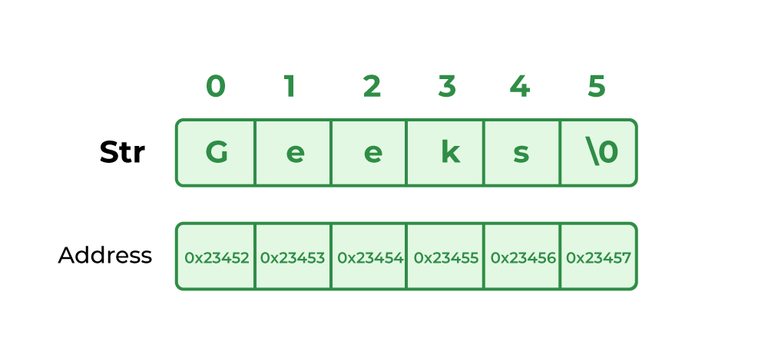Why Are Strings Immutable in Java? Best Practices and Usage Cases
Why Are Strings Immutable in Java? Best Practices and Usage Cases
Blog Article
What Is Unalterable Strings and Exactly How It Works
In the realm of shows, understanding the idea of unalterable strings is paramount for developing durable and protected applications. Unalterable strings refer to strings that can not be altered after they are developed, ensuring information honesty and predictability within the code. This essential concept plays a crucial role in different programming languages and provides an one-of-a-kind strategy to dealing with data. By discovering the intricacies of just how immutable strings function, one can discover a world of advantages and possibilities that can elevate the quality and efficiency of software program growth.
The Basics of Unalterable Strings
Unalterable strings, as a fundamental idea in programs, are character series that can not be changed as soon as they are created. This indicates that once a string is assigned a worth, that worth can not be changed. In languages like Python and Java, strings are unalterable objects, causing different effects in terms of memory monitoring and data stability.
Among the vital benefits of immutable strings is that they offer a complacency in data control. Since the material of an unalterable string can not be customized, it ensures that the initial information stays undamaged, lowering the risk of unintentional adjustments throughout program execution (Why are strings immutable in Java?). This home additionally simplifies debugging processes, as developers can trust that when a string is specified, its value will not be inadvertently changed
Moreover, unalterable strings facilitate effective memory usage. When a brand-new string is developed based on an existing one, as opposed to modifying the initial string, the new value is kept individually. This method enhances efficiency by decreasing memory fragmentation and streamlining memory appropriation procedures. On the whole, recognizing the essentials of immutable strings is crucial for understanding programming principles and maximizing code efficiency.
Benefits of Unalterable Strings
Structure upon the safety and performance benefits of unalterable strings, their benefits reach boosting code reliability and simplifying concurrent programming jobs. By being unalterable, strings can not be customized after development, which gets rid of the threat of unplanned modifications in the information they save. This integral immutability makes sure that when a string is created, its value continues to be constant throughout the program's implementation, minimizing the possibilities of pests created by unanticipated changes.
Furthermore, immutable strings contribute to code integrity by making it less complicated to reason concerning the state of a program. Given that strings can not be changed, programmers can rely on that a string will always hold the same value, simplifying debugging and upkeep initiatives. This predictability causes more reliable and steady codebases.

Execution in Shows Languages
Within various shows languages, the unification of immutable strings is a basic aspect that affects how information is dealt with and controlled within code frameworks. The implementation of unalterable strings differs across different shows languages, with each language supplying its very own systems to sustain this concept.

In comparison, languages like C and C++ do not have built-in assistance for unalterable strings. Designers in these languages must manually apply immutability by imposing policies within their code to protect against direct adjustments to string items.
Ideal Practices for Collaborating With Unalterable Strings
When dealing with unalterable strings in programming languages like Java and Python, sticking to ideal methods ensures safe Web Site and secure and effective information manipulation. Among the key finest methods is to utilize StringBuilder or StringBuffer rather than straight controling strings, particularly when handling considerable concatenation procedures. These courses supply mutable options for string adjustment, assisting to prevent unneeded memory allowances and improving efficiency.
Furthermore, when functioning with sensitive information such as passwords or API secrets, it Full Report is vital to avoid storing them as plain message in immutable strings. Using safe storage mechanisms like char varieties or specialized collections for dealing with sensitive info helps minimize safety threats linked with unalterable strings.
Real-world Applications and Instances
Checking out functional executions of unalterable strings in numerous industries exposes their significant influence on data honesty and system integrity. In the health care industry, unalterable strings play a critical function in making sure the safety and security and confidentiality of patient data. By stopping unapproved adjustments to delicate details such as clinical documents and prescriptions, immutable strings assist maintain compliance with strict privacy regulations like HIPAA.
Banks likewise gain from the unalterable nature of strings to boost the security of consumer information and transaction records. Immutable strings aid avoid fraudulence and unapproved alterations to financial info, giving a durable defense versus cyber threats and making certain the trust and confidence of customers.

Final Thought
Best techniques for functioning with immutable strings include staying clear of direct adjustments and using methods that return new string objects. Real-world applications of unalterable strings include data encryption, caching, and string control jobs.
Unalterable strings refer to strings that can not be altered after they are developed, guaranteeing data stability and predictability within the code. When a new string is created based on an existing one, instead than changing the original string, the brand-new value is kept individually.In languages like Java and Python, strings are immutable by default, indicating that as soon as a string things is developed, its value can not be changed - Why are strings immutable in Java?. Finest techniques for functioning with immutable strings include staying clear of direct alterations and utilizing methods that return new string things. Real-world applications of immutable strings include information encryption, caching, and string manipulation jobs
Report this page